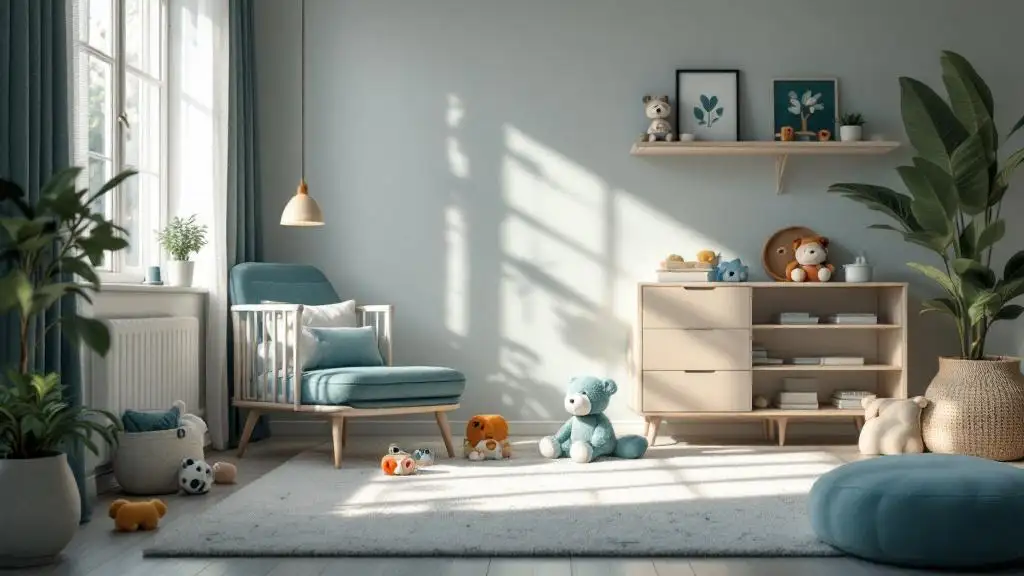Do Autistic People Get Married?

Understanding Marriage and Autism: A Comprehensive Look
For many, marriage is a milestone of emotional connection, commitment, and shared life. Yet, for individuals on the autism spectrum, questions often arise about their capacity for love, partnership, and the realities of marriage. This article delves into how autistic individuals experience romantic relationships, the challenges they face, and the statistics that shape our understanding of marriage within the autistic community. Through personal stories, expert insights, and current data, we explore whether and how autistic people get married, aiming to dispel misconceptions and highlight the spectrum of experiences.
Autism and the Capacity for Love and Marriage

What impact does autism have on marriage and romantic relationships?
Autism influences marriage and romantic connections mainly through differences in communication and social understanding. These differences can sometimes lead to misunderstandings or disagreements. For example, autistic traits such as stimming, food or physical aversions, and intense interests can pose challenges.
However, these traits can also contribute positively. For instance, many autistic individuals exhibit high levels of honesty and devotion, which can add stability and trust in relationships. Recent studies reveal that autistic people often have strong empathy, contrary to outdated stereotypes. This empathy fosters deep emotional bonds and understanding.
Successful relationships involving autistic partners often rely on clear communication, patience, and mutual support. Couples who understand and accept each other's differences can build lasting, meaningful partnerships. Evidence suggests that autism shapes the way relationships form and develop, emphasizing their unique, valuable qualities.
In summary, autism does not prevent romantic or marital happiness but requires awareness and adjustment. With effort and understanding, autistic individuals can experience love, companionship, and marriage just like anyone else.
Challenges Faced by Autistic Individuals in Marriage

What are some challenges faced by autistic individuals in marriage?
Autistic individuals often encounter specific challenges that can influence their marital relationships. Communication difficulties are common; many autistic people struggle with interpreting social cues, reading facial expressions, or maintaining typical conversation flow. These barriers can lead to misunderstandings or feelings of frustration for both partners.
Another obstacle is a strong preference for routines and resistance to change. Autistic individuals frequently find comfort in predictable patterns, and unexpected life changes or shifting relationship dynamics can cause stress or anxiety.
Furthermore, misconceptions about emotional capacity may affect relationships. Although autistic individuals can love deeply and empathize strongly, stereotypes suggest otherwise. This misinformation might hinder relationship development or lead to unfair judgments.
Navigating social misunderstandings and conflicts is also challenging. Autistic partners may find it difficult to engage in social activities or handle disagreements without misinterpretation or heightened emotional responses.
Despite these hurdles, many autistic couples demonstrate that through patience, understanding, and tailored communication strategies, meaningful and lasting relationships are attainable. Recognizing and addressing these challenges is essential for supporting healthy marriages within the autistic community.
Marriage and Parenthood Among Autistic Individuals
Are autistic individuals capable of marriage and having children?
Autistic individuals can and do engage in marriage and parenthood, challenging common misconceptions. Personal stories, like that of Angel and Rekha—who married after meeting through family and built a loving relationship—highlight that love, companionship, and fulfilling family life are well within their reach.
Expert insights underscore that many autistic people form meaningful romantic bonds, marry, and raise children successfully. While sensory sensitivities, hyperfixations, and social difficulties can pose challenges, these are manageable with patience, shared understanding, and sometimes professional support.
Marriage offers structure and routine, which many autistic individuals find beneficial. It can provide emotional stability and partnership, helping fill emotional needs that might otherwise remain unmet.
Autistic parents often demonstrate great devotion and care, emphasizing that parenthood is entirely possible. Resources and community initiatives support autistic individuals and couples in dating, marriage, and parenting, emphasizing that love and family are universal aspirations.
In summary, with open communication, mutual support, and adaptive strategies, autistic individuals are fully capable of experiencing the joys of marriage and parenthood.
The Reality of Marriage Rates in the Autistic Community

What are the statistics on marriage rates among autistic adults?
Research indicates that marriage rates for autistic individuals are significantly lower than those in the general population. Approximately 5% of autistic adults are married, compared to about 50% of neurotypical adults. In their 20s, only 9% of autistic adults are married, while by their 30s, this increases to 18%.
How do these figures compare with neurotypical populations?
For context, around half of all neurotypical adults are married. The disparity is even more pronounced when considering that autistic adults are about 2.8 times less likely to marry over their lifetime. Various factors influence these numbers, including social, communication, and emotional differences, which might affect relationship formation.
Are there differences based on age, gender, and intellectual ability?
Autistic women tend to marry more often than autistic men: 16% versus 11%. When considering intellectual ability, 31% of autistic adults without intellectual disabilities are married, whereas only 1% of those with intellectual disabilities are. Relationship stability also varies: approximately 30% of marriages involving autistic partners end before age 30.
Can autistic people marry non-autistic partners?
Yes, many autistic individuals marry non-autistic partners. Despite challenges like sensory sensitivities, stimming, or hyperfixations, successful marriages are possible through open communication and mutual understanding. Partners are encouraged to discuss boundaries, expectations, and adjustments as their relationship grows. External considerations such as caregiving and financial stresses can influence relationship dynamics but are manageable with cooperation. With honesty, patience, and respectful dialogue, autistic individuals and their partners can build strong, fulfilling marriages.
What about relationship satisfaction?
Studies show that marriage satisfaction levels are comparable between autistic-autistic couples (62%) and neurotypical-autistic couples (67%), although slightly lower compared to neurotypical-neurotypical pairs (73%). Overall, many autistic individuals value companionship and romantic relationships highly, with around 75% expressing a desire for such connections. Despite lower marriage rates, autistic people can and do experience love, partnership, and fulfilling family life, emphasizing their diverse and valid experiences.
Marriage Rate Disparities and Longevity in the Spectrum
How do marriage rates compare between autistic and neurotypical populations?
Autistic individuals tend to marry less frequently than neurotypical individuals. Approximately 5% of autistic adults are married, which is about half the rate seen in the general population, where around 50% are married. Specifically, only about 9% of autistic adults in their 20s and 18% in their 30s are married, compared to 28% and 65% of neurotypical counterparts at those ages.
What are age-related trends in marriage among autistic adults?
Marriage rates among autistic adults increase with age but remain significantly lower than neurotypical individuals. At age 20, only 9% of autistic adults are married, and this rises to 18% in their 30s—a reflection of delaying or lower pursuit of marriage. Interestingly, the average age at marriage for autistic individuals is around 20 years old.
How do divorce and relationship satisfaction look within these populations?
Autistic people face higher divorce rates, with about 2.8 times more likely to experience divorce compared to neurotypical individuals. Among couples with one autistic partner, 30% end their marriage before the age of 30. Relationship satisfaction, however, remains promising: 67% of neurotypical-autistic couples report satisfaction, close to 62% for autistic-autistic couples, and higher at 73% for neurotypical-neurotypical partnerships.
How might these statistics relate to the overall capacities for love and companionship?
Despite lower marriage rates, many autistic adults, around 75%, express a desire for romantic relationships. Personal stories, like that of Angel and Rekha, show that fulfilling and honest marriages are possible with understanding and communication. These examples highlight that autism does not impede the capacity for love or meaningful partnerships.
What about the health outlook and lifespan for individuals with autism?
The typical life expectancy for autistic individuals varies based on severity and health conditions. Overall, it ranges from 39 to 58 years, with higher-functioning individuals reaching their 70s or 80s, similar to the general population. Factors like early intervention and proper support can improve quality of life and lifespan.
| Aspect | Statistics / Details | Additional Insights |
|---|---|---|
| Marriage prevalence | 5% of adults; 9% in 20s; 18% in 30s | Significantly lower than the general 50% rate |
| Age at marriage | Average around 20 years | Tends to be later or less common among autistic adults |
| Divorce rate | 2.8 times higher than neurotypical couples | Autistic-autistic couples have slightly lower divorce rates |
| Relationship satisfaction | 67-73% depending on couple type | Shows many autistic individuals find fulfilling relationships |
| Life expectancy | 39-58 years, with some reaching 70s or beyond | Variations based on severity and health conditions |
This data collectively underscores that while autistic individuals face certain challenges in relationships, they are equally capable of love, marriage, and long-term companionship. Awareness, acceptance, and support can significantly enhance their life experiences.
Personal Stories Highlighting Love on the Spectrum

How do personal stories shape our understanding of love among autistic individuals?
Real-life accounts provide powerful insights into the lives of autistic people, demonstrating that meaningful romantic relationships and marriages are indeed possible. For example, the story of Angel and Rekha, both on the autism spectrum, illustrates a successful marriage that began with understanding and shared commitment. Their simple wedding ceremony was attended by family, marking the start of their journey together.
Angel, diagnosed with mild mental retardation and autism from birth, shows that developmental challenges do not prevent forming a deep, caring bond. He takes on the role of a nurturing husband and considerate son-in-law, keeping Rekha’s happiness and well-being at the forefront. Rekha, also diagnosed as autistic, listens attentively and cares for Angel when he is unwell, showcasing mutual support.
Similarly, Cassie Hauschildt, who was diagnosed after marriage, shares her own experience of navigating love and marriage as an autistic person. Her story emphasizes that honesty about autism and open communication are vital. She highlights that traits such as routines, devotion, and integrity contribute positively to relationships.
These stories challenge misconceptions that autism limits emotional capacity. Instead, they reflect that autistic individuals are capable of love, companionship, and fulfilling marriages. Their experiences underscore the importance of understanding and acceptance, paving the way for more inclusive perceptions of love.
How do relationships flourish despite challenges?
While autistic traits such as stimming, food aversions, or hyperfixations may present hurdles, these can be managed through awareness and adjustments. For instance, couples find success by establishing clear routines, engaging in shared activities, and maintaining honest communication about needs and boundaries.
Research indicates that relationship satisfaction among autistic couples is quite high when there is mutual understanding. For example, 67% of neurotypical-autistic couples report satisfaction, implying that despite difficulties—like communication barriers—strong, sustaining relationships are achievable.
Understanding that some autistic traits can be strengths—such as honesty and loyalty—further supports relationship stability. With patience and effort, couples often develop unique ways to connect, emphasizing emotional closeness and shared commitments.
Why is honesty and understanding important?
Open disclosure about autism traits fosters trust and helps partners accommodate each other better. For example, recognizing that face reading or eye contact might be challenging enables couples to avoid misunderstandings.
By embracing each other's differences and reinforcing strengths, autistic and neurotypical partners can build resilient relationships. Overall, these personal stories and research findings demonstrate that love on the spectrum is vibrant, real, and fulfilling—proof that autism does not impede the pursuit of companionship and lifelong partnership.
The Role of Society and Support in Making Marriages Work

What impact does autism have on marriage and romantic relationships?
Autism can shape marriage and romantic partnerships in various ways. Challenges such as communication difficulties, differences in social understanding, and sensory sensitivities may sometimes lead to misunderstandings or conflicts. For example, traits like stimming, food or physical aversions, and hyperfixations can influence daily interactions.
However, many autistic traits also have positive effects. Their honesty, deep passions, and routines can contribute to stable and meaningful relationships. Recent studies reveal that autistic individuals often possess high levels of empathy, contrary to old stereotypes that they lack emotional understanding. This empathy can strengthen bonds when partners communicate openly.
Successful relationships involving autistic individuals often depend on mutual understanding, patience, and ongoing support. Couples who are aware of each other's needs and differences tend to navigate challenges better. Recognizing that autism is just one aspect of a person’s identity is vital.
Overall, with adequate awareness and adjustments, autism does not mean a person cannot enjoy love or marriage. Instead, it influences relationship dynamics, making each partnership unique and potentially resilient.
Conclusion: Embracing Love and Commitment as an Autistic Individual
Summarizing the main points
Autistic people are fully capable of love, marriage, and family life. Many individuals on the spectrum—like Cassie Hauschildt, who shares her personal journey of marriage after diagnosis—exemplify that romantic relationships and meaningful partnerships are entirely possible. Despite some challenges such as sensory sensitivities, hyperfixations, or communication differences, resilience and understanding can help foster strong, loving marriages.
Marriage’s structured and predictable nature can be especially suitable for autistic individuals. It provides an environment of routine and planning, which can create stability and comfort. Studies show that around 5% of autistic adults are married, with variations based on age, gender, and intellectual capabilities—indicating that marriage is an attainable goal for many on the spectrum.
Addressing misconceptions
A common stereotype is that autistic individuals do not experience emotions or love. However, recent insights demonstrate that many autistic people have deep empathy, strong emotional capacities, and caring tendencies. While some face difficulties reading facial expressions or maintaining eye contact, these do not equate to an absence of feeling.
Approximately 50% of autistic individuals experience alexithymia, a condition that complicates emotional recognition, but it does not prevent genuine emotional experiences. Personal stories, like that of Angel and Rekha, show that love, companionship, and mutual care are genuine and fulfilling aspects of marriage among autistic partners.
Encouragement for autistic individuals seeking relationships
For autistic people interested in romance and commitment, it is encouraging to recognize that they are not alone. Many express a desire for companionship—about 75% of autistic adults want romantic relationships—yet only about half are involved at any time. Building relationships may require openness, honesty, and patience.
Supportive resources, inclusive social initiatives, and community networks help autistic individuals find partners and develop healthy relationships. The stories of couples on the spectrum exemplify that with understanding and communication, love can flourish regardless of societal stereotypes. The journey towards marriage and companionship is uniquely personal, but it is equally valid and attainable for all on the spectrum.
A New Perspective on Love and Commitment
Autistic individuals are fully capable of experiencing love, forming meaningful romantic relationships, and building lasting marriages. Personal stories from autistic couples highlight that with understanding, patience, and open communication, many challenges can be overcome. While statistics reveal that marriage rates among autism are lower than those of the neurotypical population, many autistic adults do find companionship and stability, and some even choose to start families. Society’s role in fostering acceptance, providing support, and educating about autism’s diverse experiences is crucial in creating an environment where all individuals can pursue love confidently. The journey toward understanding and embracing marriage within the autistic community continues to grow, and with ongoing awareness, barriers can be broken—affirming that love on the spectrum is real, valuable, and achievable.
References
- Autism and marriage
- Married, happy, autistic: Marriage as an adult on the autism spectrum
- 15+ Autism Marriage Statistics and Facts - Crown Counseling
- Autism, Love and Marriage: Can a Person with Autism be in a ...
- Mummy, When Will I Get Married? | PatientsEngage
- Autism Life Expectancy: What Parents Need to Know [2025]
- Level 2 Autism Guide: What Parents Need to Know - Blue ABA
- Level 3 Autism: Guide to Treatment, Daily Life & Prospects - Blue ABA
- ABA Therapy Age Limits & Age Range Based on Evidence - Blue ABA
- Autism and marriage





































































































